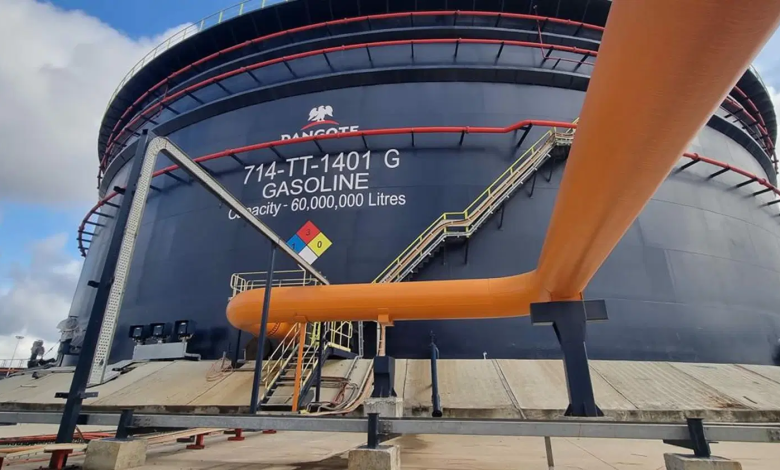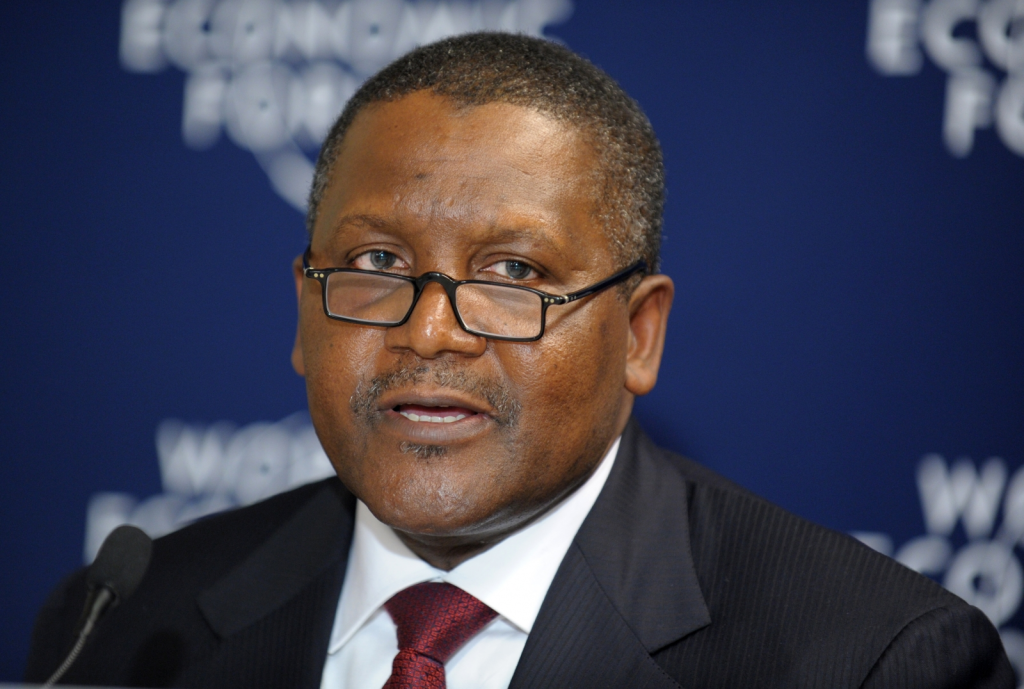Dangote Refinery Resumes PMS Truck Loading Amid Rising Petrol Prices

By DAYO ADESULU
Dangote Refinery Restarts Petrol Loading for Oil Marketers
Dangote Refinery has resumed loading Premium Motor Spirit (PMS), commonly known as petrol, onto trucks for distribution to oil marketers. This follows a temporary halt in truck loading due to the suspension of the Naira-for-crude program, increasing crude oil prices, and ongoing foreign exchange challenges.
While the refinery continued ship-loading operations at dollar-based rates, the $20 billion, 650,000 barrels per day (bpd) refinery asked oil marketers to make additional payments to secure petrol supply.
Dangote Refinery: Marketers Comply as Loading Resumes at N880 Per Litre
Industry sources confirmed that several oil marketing companies, including MRS Oil & Gas, adhered to the refinery’s request and resumed loading at an adjusted depot price of N880 per litre.

A reliable insider noted:
“Loading by trucks has commenced for oil marketing companies that have met the additional payment requirements.”
Dangote Refinery: Rising Petrol Prices Across Nigeria
Following these adjustments, petrol prices across Nigeria have increased, with new pump and depot prices reaching as high as N960 per litre, according to a price list obtained from MRS Oil & Gas.
- IPMAN Secures Agreement with Dangote Refinery for Direct Petrol Lifting
- https://www.thecheernews.com/yp4t-distributes-over-2000-bags-of-rice-to-support-muslims-and-widows-during-eid-celebrations-in-lagos-police-barracks/
The new prices, effective from March 28, 2025, show variations based on location:
- Lagos: N930 per litre
- South West (Ogun, Oyo, Osun, Ekiti, Kwara, Ondo): N940 per litre
- South-South & South East (Edo, Abia, Akwa Ibom, Bayelsa, Rivers, Cross River, Enugu): N960 per litre
- North Central (Abuja, Kaduna, Benue, Kogi, Niger, Sokoto, Kebbi, Nasarawa): N950 per litre
- North East & North West (Zamfara, Kano, Jos, Bauchi, Taraba, Adamawa, Borno, Katsina, Jigawa, Gombe, Yobe): N960 per litre
The Impact of the Naira-for-Crude Policy Suspension
The Naira-for-crude initiative was originally introduced to stabilize domestic fuel supply, curb rising import costs, and maintain regulated pump prices. Under this scheme, Dangote Refinery received 48 million barrels of crude oil in naira since October 2024, totaling 84 million barrels since its operations began in 2023.
The recent policy suspension has forced the refinery to shift towards market-driven pricing, impacting both oil marketers and consumers.
Dangote Refinery’s Long-Term Vision
According to a statement on its official website, Dangote Refinery aims to meet 100% of Nigeria’s refined product needs while also generating surplus volumes for export.
“The refinery will create a market for $21 billion per annum of Nigerian crude. It is designed to process Nigerian crude with the ability to also process other crudes.”
With ongoing fluctuations in global crude prices and foreign exchange challenges, the Nigerian fuel market is expected to remain unstable unless decisive policy actions are taken.
Stay updated for more on petrol price changes and refinery operations.
Effects of High Cost of Petroleum Products
The high cost of petroleum products has far-reaching economic and social consequences, affecting individuals, businesses, and national economies. One of the immediate effects is the increase in transportation costs. As fuel prices rise, public transportation fares and logistics expenses go up, making goods and services more expensive. This leads to inflation, reducing the purchasing power of consumers.
For industries that rely heavily on petroleum, such as manufacturing and agriculture, higher fuel costs translate to increased production expenses. This results in higher prices for essential goods like food and household items, further straining household budgets.
Additionally, businesses may struggle to maintain operations, leading to job losses and economic instability. Small and medium-sized enterprises (SMEs) are particularly vulnerable, as they may be unable to absorb rising costs.
The high cost of petrol also discourages investment in industries reliant on affordable energy. It can reduce economic growth and increase poverty levels, particularly in developing nations.
Socially, expensive petroleum products limit access to essential services such as healthcare and education, as transportation costs become prohibitive for many people.
#DangotePetroleum, #FuelPriceUpdate, #NigeriaEconomy, #EnergyCrisis, #OilMarketing, #DangoteRefinery, #PMSPriceHike, #FuelScarcity, #NigeriaPetrolPrices, #FuelPrice, #EconomicImpact, #Inflation,





